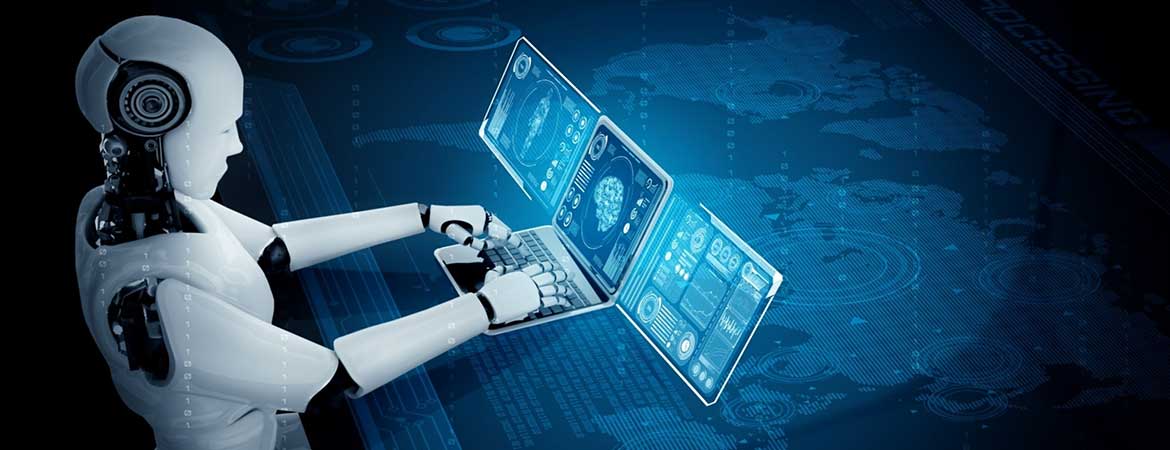
We use cookies to ensure that we give you the best experience on our website.
By using this site, you agree to our use of cookies. Find out more.
The merging of AI and RPA through intelligent automation is pushing the frontiers of what is possible to automate. By infusing AI abilities into bots, IA creates new opportunities for continuous improvement that extend well beyond what early RPA adopters envisioned.

Artificial intelligence (AI) and Robotic Process Automation (RPA) are increasingly converging to form intelligent automation (IA), a transformative force reshaping global business operations. By applying capabilities such as computer vision, natural language processing and machine learning to automate routine workflows traditionally handled by humans or software robots, IA delivers unprecedented levels of productivity, cost savings and customer experience. This convergence blurs the boundaries between AI and RPA, taking automation beyond basic rule-based tasks toward more strategic goals. In this blog, we will explore how top organizations are leveraging the combined strengths of AI and RPA through IA to streamline processes, optimize decision-making and gain competitive advantages.
Intelligent automation (IA) integrates artificial intelligence and Robotic Process Automation to automate tasks that have traditionally required human involvement, judgment and expertise. Where RPA automates repetitive, rules-based processes through scripts and workflows, IA utilizes advanced AI technologies like machine learning, deep learning and natural language processing to understand complex data inputs. This enables intelligent automation to perform tasks that involve judgment, insights and contextual awareness. For example, while RPA can automate basic data entry functions, IA infuses cognitive capabilities to interpret unstructured text, audit documents for accuracy and comprehend a customer's needs from conversational inputs.
By learning from data over time, IA systems can identify patterns and derive contextual recommendations for decision-making. The integration of AI extends the capabilities of RPA from rules-based tasks to more knowledge-based work. Intelligent automation aims to read, understand and respond to ever-changing environments like RPA humans do, thereby allowing organizations to automate previously non-repetitive processes that require human thinking.
Here are some potential uses for intelligent automation:

Here are the top four ways that IA combines AI and RPA to increase business efficiency:
One of the key ways IA increases business efficiency is by significantly improving productivity. By automating repetitive manual tasks through RPA bots, IA frees up employee time and allows them to focus on more strategic work. However, the integration of AI is what truly elevates productivity. Advanced machine learning algorithms enable automation of tasks that were previously impossible to codify, like data extraction from complex documents.
AI also helps RPA bots work more autonomously by understanding changing contexts and making judgments. This results in faster processing with fewer errors. Overall, organizations benefit enormously from the streamlined workflows and higher throughput delivered by the combination of AI and RPA under intelligent automation.
Intelligent automation delivers substantial cost reductions for businesses by optimizing workflows and resource utilization. RPA bots performing mundane tasks like data entry or invoice processing eliminate labor expenses. Meanwhile, AI fueling the bots slashes other operational expenses. For example, machine learning algorithms spot patterns to forecast demand more accurately, helping reduce inventory holding costs. They also automate routine maintenance, preventing equipment downtime.
Advanced AI drives continual process improvement by surface unnecessary tasks and inefficiencies. With intelligent virtual agents handling basic customer queries at a fraction of the human cost, fewer customer service agents are needed. All these factors combined help organizations significantly trim operating expenses through IA.
One of the main benefits of leveraging AI with RPA is the dramatic improvements seen in accuracy levels. While RPA bots can perform repetitive tasks flawlessly according to programmed rules, they have limitations in tasks requiring judgment calls. With machine learning, IA systems can recognize patterns in vast amounts of data that humans would miss.
For example, AI assistants can double check invoices for errors by cross-referencing shipping records. They also identify anomalies in medical diagnostic reports through image analysis. By augmenting RPA with cognitive capabilities, IA reduces mistakes and rework. This ensures smoother workflows as well as higher quality outputs that meet compliance standards - improving efficiency, productivity and customer satisfaction.
Intelligent automation with AI is highly effective at enriching customer experience through personalized engagements. Smart chatbots and virtual assistants powered by natural language processing can resolve a wide range of queries quickly and competently around the clock. They understand customer intents from conversations to address issues proactively.
Prior interactions and purchasing patterns are analyzed to offer tailored recommendations or troubleshoot problems. Response consistency is far superior to human agents. Such seamless engagement builds confidence and loyalty. The insights gained also help optimize service levels by identifying areas of maximum customer pain points. Overall, IA delivers a far more engaging, efficient and satisfying support experience than traditional models.
Here are misconceptions about intelligent automation (IA):
One common misunderstanding about intelligent automation is that it will replace human workers. While IA technologies are capable of automating repetitive and routine tasks, the goal is not to eliminate jobs but rather to transform them. By handling structured activities more efficiently, IA frees up employees to focus on more creative and complex duties that require human skills like critical thinking, collaboration and empathy.
Far from making human workers irrelevant, IA augments their roles by boosting productivity. When deployed strategically, it can even help businesses grow and create new kinds of job opportunities. Overall, IA is poised to change the nature of work rather than cause widespread unemployment. Its impact will be felt through job descriptions evolving, not jobs disappearing.
Some organizations believe that intelligent automation is a non-essential technology nice only to have if resources allow. However, businesses that invest in IA gain significant advantages that become increasingly difficult for competitors to match. By streamlining routine processes, optimizing decision-making with data-driven insights, and enhancing customer experiences, IA delivers measurable returns in productivity, cost reduction and revenues. Those who adopt early achieve higher profits and market share through improved efficiencies compared to late adopters. With the capabilities to boost bottom lines while freeing up workers, IA has rapidly transformed from a luxury to a necessity for remaining competitive in today's digital economy.
While AI and automation aim to introduce more objectivity to decision-making, it is incorrect to assume intelligent systems are completely devoid of bias. As with any technology created by human designers and trained on data reflective of real world biases, IA technologies inherit some prejudices from their creators and data sources. The algorithms and data that power IA solutions risk exacerbating unequal outcomes if not developed and governed carefully.
To prevent unfair outcomes, companies must acknowledge the limitations of their systems and implement oversight, transparency into how decisions are made, and opportunities for human intervention. With proper safeguards, IA can augment human judgment rather than replace it on matters requiring true impartiality.
Intelligent automation technologies like artificial intelligence and machine learning can help solve many problems facing businesses and people. These technologies have more abilities than traditional computer programs and can learn on their own just like humans do.
One use of intelligent automation is to help doctors. Machines can analyze medical records, scan reports and test results to find patterns. This can help doctors diagnose sick people better and faster. The machines may notice things that doctors miss because they have to look at so many cases. Early detection of diseases means treatment can start sooner.
For businesses, intelligent automation helps handle high volumes of work more efficiently. Many routine tasks like processing invoices or payments can be done by machines without errors. This frees up employees to focus on more complex jobs that require human judgement. Customer service chatbots using AI can answer common questions automatically. This improves service and reduces wait times for customers.
In manufacturing, robots using computer vision and learning can spot defects in products on the production line. They can identify issues before expensive mistakes are made. Intelligent machines working alongside humans make factories safer and more productive. Self-driving vehicles and drones promise to transform logistics by delivering goods in new ways without human drivers. This reduces costs.
While intelligent automation brings many benefits, new skills will still be needed from people to work effectively with these technologies. Intelligent systems and human abilities can complement each other to achieve more than what either could do alone. When applied thoughtfully to real problems, intelligent automation holds great potential to improve lives.
The merging of AI and RPA through intelligent automation is pushing the frontiers of what is possible to automate. By infusing AI abilities into bots, IA creates new opportunities for continuous improvement that extend well beyond what early RPA adopters envisioned. For businesses willing to reimagine workflows with this new paradigm in mind, IA offers breakthrough returns through exponential increases in efficiency, data-driven insights and service delivery. While challenges around implementation and change management exist, the rewards for first movers are substantial. Looking ahead, as technologies advance and IA solutions become more pervasive, the full strategic impact of this convergence on entire industries and the global economy is only beginning to be understood.
Leave a Comment
Your email address will not be published.